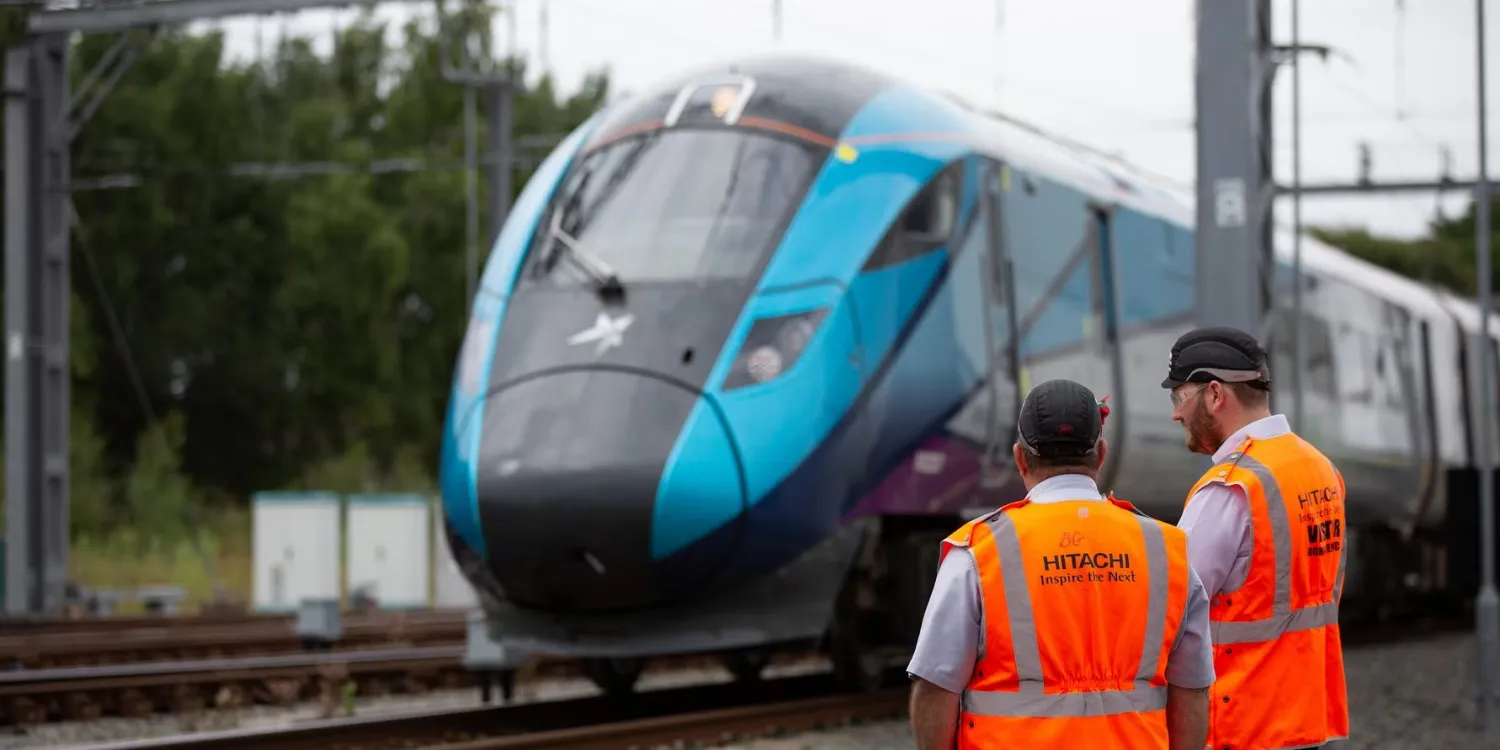A “UK-first” intercity battery trial train proved that single battery technology can outperform diesel engines cost-effectively.
Hitachi Rail, Angel Trains, and TransPennine Express just wrapped up the trial, which took place in the north of England. It proved that powerful batteries offer significant benefits for emissions, fuel savings, and air quality.
Hitachi has already rolled out passenger battery trains in Japan and Europe, like the Masaccio hybrid in Italy. The intercity battery trial train in the UK demonstrated that the 700 kW battery could push the train past 75 mph and power it for over 70 km. The battery matches the weight of a diesel engine and is installed in the same undercarriage space, ensuring no risk of track degradation and no impact on the passenger environment.
The battery trial train delivered better-than-expected results in fuel savings, cutting fuel costs by 35-50%. One key way it achieved this was with an “Eco-mode” where the battery fully powered sections of the route, showing that the technology is more than ready for real-world use.
This success gives Hitachi the green light to move on to a full intercity battery-electric train, with an estimated range of 100-150 km. That would allow significant stretches of non-electrified routes to go battery-powered, avoiding the need for expensive infrastructure like overhead wires in tunnels or stations.
UK Rail Minister Lord Hendy said:
Rail is already the most environmentally friendly form of public transport, and the success of this trial will pave the way for even greener, more reliable journeys for millions of passengers.
This technology will play a vital role as we deliver our ambitious plans to transform and decarbonize the railways, and it could open the door to a more affordable expansion of the network for communities across the country.
Hitachi Rail is the only train manufacturer developing a battery product using the UK battery supply chain, and it’s collaborating with Innovate UK and the University of Birmingham to develop next-gen battery technology.

